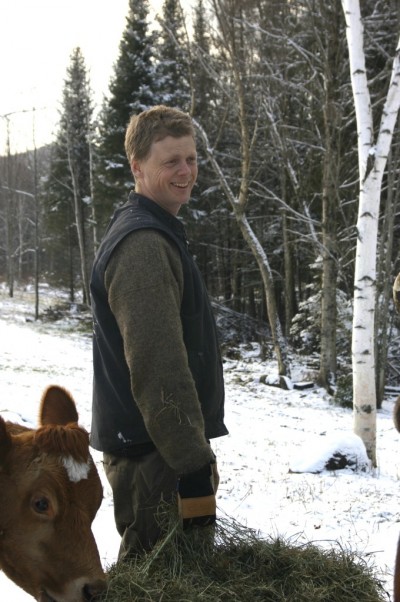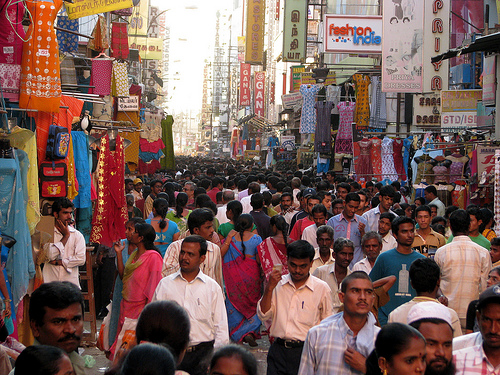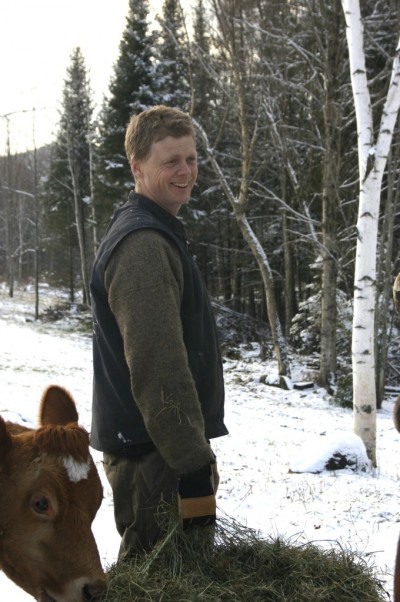 Ben Hewitt on his farm outside of Hardwick.Hardwick, a hardscrabble town in rural Vermont (pop. 3,200), once based its economy on a non-renewable resource locked up in its surrounding hillsides: granite. But then the granite ran out — taking the town economy down with it. More recently, the town has embarked on a wild experiment. Its economy is now based on farming and food production at a variety of scales, from niche veggie farms to a national organic seed business, from a locavore café to a statewide salad-greens producer. It’s worked. While the national finances plunged into the abyss in 2008, Hardwick kept adding jobs.
Ben Hewitt on his farm outside of Hardwick.Hardwick, a hardscrabble town in rural Vermont (pop. 3,200), once based its economy on a non-renewable resource locked up in its surrounding hillsides: granite. But then the granite ran out — taking the town economy down with it. More recently, the town has embarked on a wild experiment. Its economy is now based on farming and food production at a variety of scales, from niche veggie farms to a national organic seed business, from a locavore café to a statewide salad-greens producer. It’s worked. While the national finances plunged into the abyss in 2008, Hardwick kept adding jobs.
As someone who’s interested in food production as a tool of community-scale economic development, I’ve been watching the Hardwick story enthusiastically ever since Marian Burros sang the town’s praises in The New York Times back in 2008. So I was excited this past winter when Ben Hewitt, a Hardwick-area farmer and writer, came out with a book called The Town That Food Saved: How One Community Found Vitality in Local Food.
With great sensitivity and a wealth of on-the-ground reporting, Hewitt shows that the story of Hardwick’s food revolution is a lot more complex and nuanced than could ever be expressed in a newspaper story. For the latest edition of Victual Reality, my podcast about food politics, I recently caught up with Hewitt via phone from his farm outside Hardwick.
(The Victual Reality podcast is part of the Edible Communities project Edible Radio)



